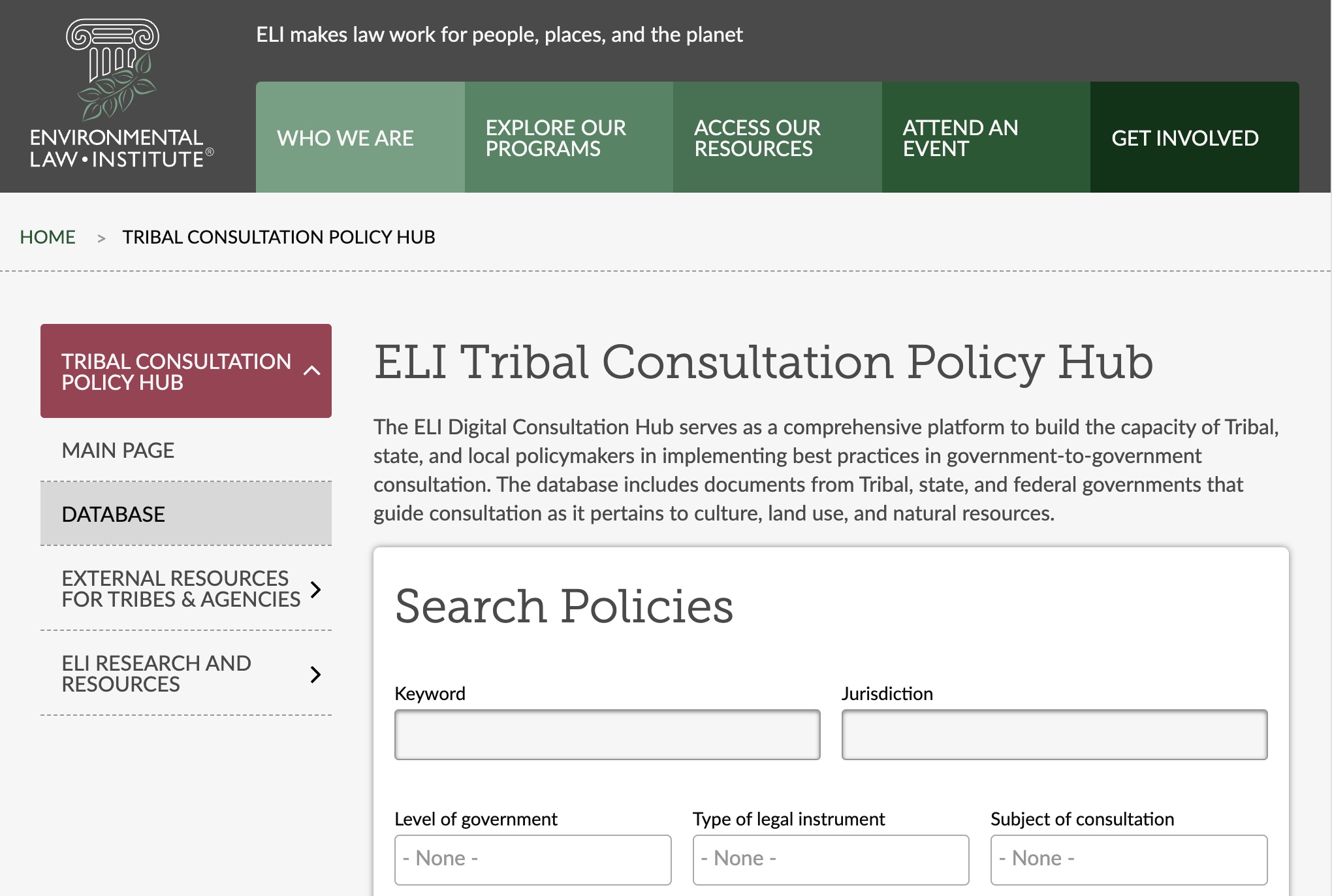
- Details
- By Chez Oxendine
- Sovereignty
Tribal consultations can be labyrinthine intersections of tribal, state, and federal laws in the best situations. To provide some clarity, the Washington, D.C.-based think tank Environmental Law Institute has launched an online tribal consultation hub.
The website centralizes information around tribal consultation policies, including individual tribal laws, state regulations, and federal regulations. The goal is to help tribes participate more thoroughly in consultations for environmental reviews, questions around land use, and climate collaboration.
The hub arrives amid a federal push for wider tribal consultation, such as co-stewardship agreements around tribal forests, or questions around tax policy for renewable energy tax credits, per prior Tribal Business News reporting. Federal consultation requirements changed significantly over the last four years, following President Biden's early 2021 memorandum that made tribal consultation a cornerstone of federal policy. That order required all executive departments and agencies to engage with tribal officials when developing policies that affect Native nations. Under this approach, agencies had to submit detailed consultation plans and annual progress reports, fundamentally reshaping how the federal government worked with tribes.
The Institute was prompted to launch the hub after studying how consultation policies impacted tribes in California. The organization found that legislation requiring local and state governments to consult tribes generally improved intergovernmental relationships. However, tribes also felt they only had “moderately” more influence over agency decision-making, per the report.
By making more policies available for review across the country, ELI hopes to prompt discussion and further consultation - as well as lighten the administrative load for tribes grappling with the rules, per an Institute statement.
“The Tribal Consultation Policy Hub is a crucial tool for ensuring that tribes have a meaningful voice in decisions affecting their health, environment, and cultural wellbeing,” Greta Swanson, project lead for ELI, said in a statement. “It strengthens government-to-government consultation, providing information on consultation policies in order to respect Tribal sovereignty and protect Tribal culture, resources, and community health.”
Brian Edwards provided additional reporting.
